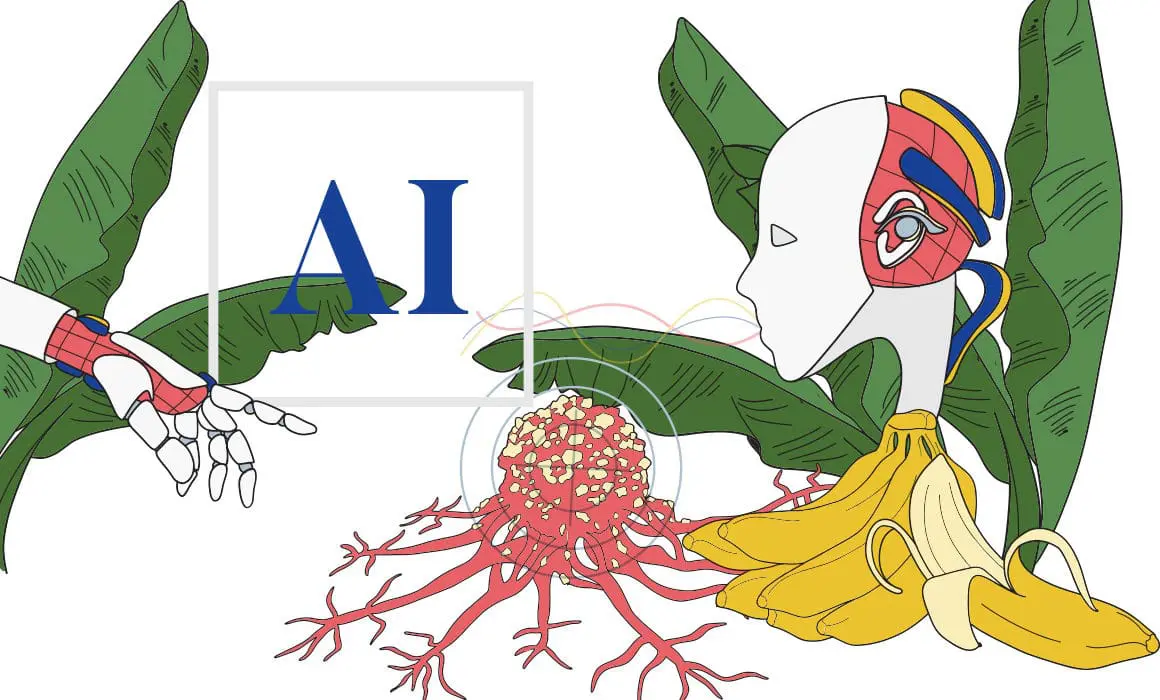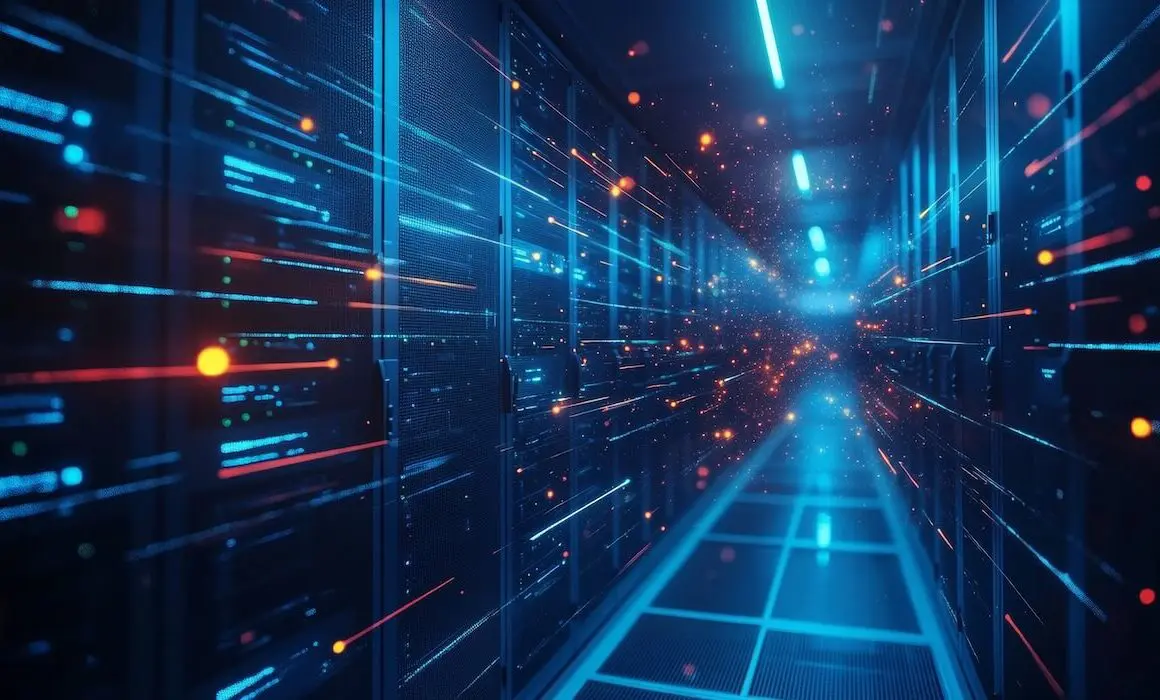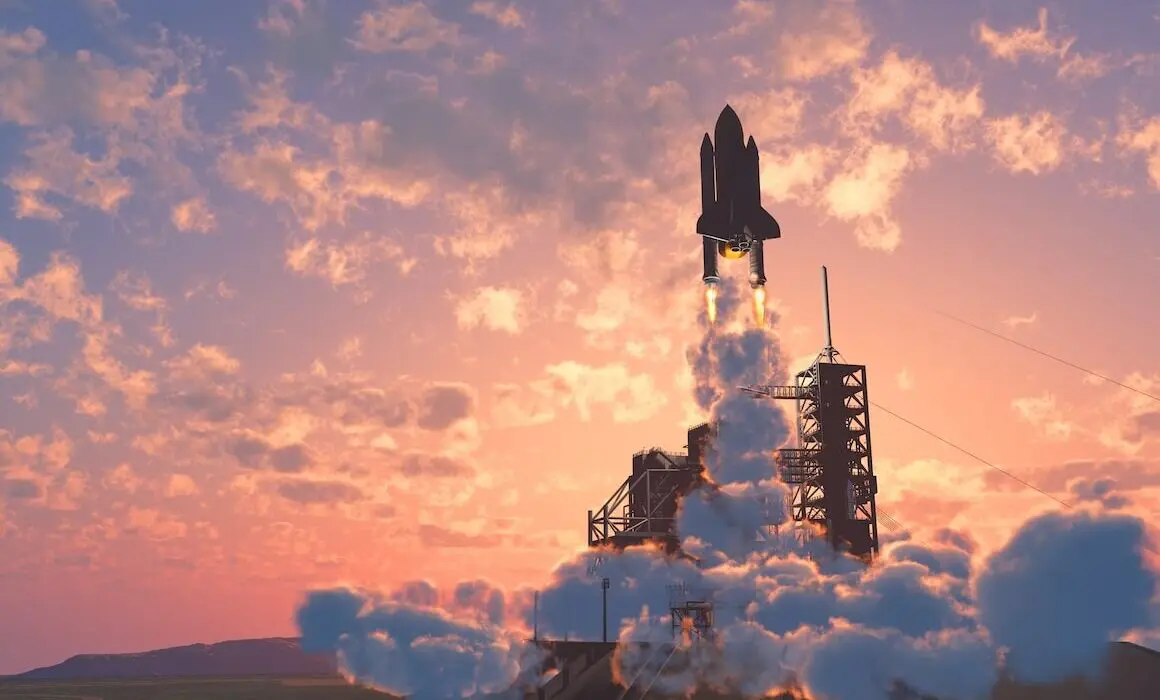Bananas, Bots, and Breakthroughs

You know that artificial intelligence (AI) helps power your smart home devices, your favorite social media sites, and even some of the health care innovations we rely on every day.
But what about the banana on your kitchen counter? It turns out that AI helps your banana grow, too, thanks to pioneering work from Technion research assistant Alon Zvirin; Professor Ron Kimmel, head of the Geometric Imaging Processing Lab and the Montreal Chair in Sciences in the Henry and Marilyn Taub Faculty of Computer Science; and chief engineer Yaron Honen.
The team developed smart technology that analyzes color photographs and thermal imaging using AI deep learning to monitor and predict banana crop stress and leaf segmentation. Being able to predict water and heat stress early allows growers to quickly intervene, avoiding premature death and crop loss. “The detection of drought stress enables the plant to be saved, allows for the identification of diseases and the prediction of crop yield quantities — crucial information for the grower,” said Mr. Zvirin. Their AI-powered technology worked with 90% accuracy and they are already applying this innovative technique to other crops.
Across campus, Professor Yuval Shaked, head of the Rappaport Technion Integrated Cancer Center, and his company, OncoHost, are using AI to predict a patient’s response to anti-cancer therapy. While scientists have studied the effect of various therapies on the tumor, few have analyzed the effect therapy has on the patient.
“Despite considerable advances in cancer treatment, most patients do not respond to therapy at all or from a particular stage,” said Prof. Shaked. “Without the ability to predict the effectiveness of treatment, many suffer from disease recurrence or spread, which sometimes erupts with even greater violence.” Their research is expected not only to curb resistance to cancer therapies, but also to allow oncologists to develop tailored treatment plans based on understanding the patient’s unique biological processes.
Profs. Kimmel’s and Shaked’s research alone makes it clear: AI does more than power computers. It holds the potential to make our lives better in ways we can’t even yet imagine.
Harnessing the AI Revolution
Since its beginnings, the Technion has moved in lockstep with Israel as the country grew. The Technion trained the civil engineers who built the budding nation’s highways and infrastructure, the agricultural engineers who greened the desert, and the high-tech entrepreneurs who helped create Israel’s modern-day economy.
So when the Israeli government warned of a looming shortage of skilled high-tech personnel in 2017, the Technion and its supporters again answered the call.
In October 2018, the Technion inaugurated the Machine Learning and Intelligent Systems (MLIS) Research Center to advance AI research in areas including natural language processing and deep learning, and to deepen the university’s collaboration with industry. Intel was the first Fortune 500 company to announce its involvement.
Just months later, American Technion Society (ATS) supporters Eric and Jamie Gertler, acting as trustees of the Zuckerman Institute, committed to funding a variety of AI projects at MLIS. “Advancements in AI are critical to Israel’s continuation as a startup nation,” said Jamie Gertler. “And recent AI rankings show that the Technion is punching well above its weight.”
The Technion ranks #1 in Israel and #10 in the world in AI and robotics. In a move that would build on those strengths, the Technion and Carnegie Mellon University, the world’s top-ranked university in those disciplines, have recently announced a new partnership focused on advancing AI and robotics.
Other initiatives are in the works to address the way AI has changed our views on everything from medicine to consumer goods. The Technion is establishing the multidisciplinary Human Health Institute, the Center for Sustainable Processes and Catalysis, and the Advanced Manufacturing Center — all of which will lean heavily on AI to develop research and technologies that will shape the future.
Boosting Computer Science
The Technion’s prowess in AI is linked to its excellence in computer science. Since the 1960s, the late Henry Taub and his wife, Marilyn, have been generous supporters of the Technion with a focus in computer science. They made possible the construction of the Henry and Marilyn Taub and Family Science and Technology Center, home of the Faculty of Computer Science. And most recently, their family foundation provided a major donation to help support faculty recruitment, fund student scholarships and fellowships, and expand computer science research.
Their gift is crucial at this juncture, as it is expected to directly translate into a substantial increase of high-tech employees in the workforce to keep up with the incredible growth of the country’s tech sector. In honor of their decades-long commitment, the faculty was renamed in August 2020 the Henry and Marilyn Taub Faculty of Computer Science. “The generous contributions of the Taub family will help the Faculty of Computer Science maintain and advance its leadership position in Israel’s tech-based economy,” said Professor Dan Geiger, dean of the Faculty.
Once again, in response to Israel’s need for more skilled high-tech workers, the Technion launched a major expansion plan. In its current form, the Technion’s computer program has reached a saturation point, and can’t increase the number of graduates without adding physical space. Their plan includes a new 75,000-square-foot, state-of-the-art building that will house classrooms, seminar and meeting rooms, auditoriums, laboratories, faculty and researcher offices, study rooms, and underground parking.
At a time when prestigious universities and businesses are actively recruiting the most promising faculty members and students, this expansion — in conjunction with the Technion’s initiatives in AI — is crucial to helping the Technion continue to excel. That not only means a stronger Technion and more prosperous Israel — it also means we have even more exciting, AI-powered innovations to look forward to in our future.



